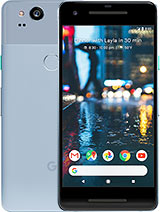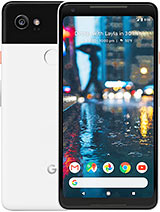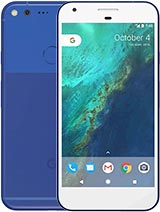Samsung Galaxy S9 Plus vs Pixel 2 XL Camera Test Comparison By SuperSaf
- What's up YouTube Saf on SuperSaf TV and welcome to another SuperSaf Style camera comparison. This time between the Samsung Galaxy S9 + and the Google Pixel 2 XL. The usual style we'll be looking at both the front and rear facing cameras and at images as well as video too do so look out for the audio icon in the corner of the screen and that will indicate to you which device the audio is coming from, and I'll be switching between these two to give you guys a better idea of the differences in audio as well. So we're currently using the front-facing cameras on both devices at 1080P, we're going to take a walk to look at the stabilization. And now let's go ahead and run to really test this out. Moving on to the rear-facing cameras.4K, 30 frames a second on both devices. Should give us a good idea of dynamic range here.
Detail, now we're just going to take a bit of a walk to see what stabilization is like, both smartphones are mounted to the same rig. Now let's go ahead and run. The other thing we do have on the S9 + is optical zoom, so we can zoom in and get lots more further detail, we can do digital zoom on the Pixel 2, but optical zoom definitely has an advantage. Testing out the auto focus on the S9 +. Super fast, that Dual Pixel auto focus is insane.
Same test on the Pixel, also super fast. Look at that. So that was the video now before we move on to images, having a quick look what we're working with. Front facing cameras we've got 8 mega pixels on both. On the Pixel 2 we've got an F2.4 aperture. With the S9 + we've got an F1.7 aperture, as well as auto-focus. For the rear facing cameras things are quite different here, the Pixel as a 12.2 mega pixel camera with an F 1.8 aperture and optical limit stabilization. The S9 + has two 12 mega pixel cameras both optically stabilized, the primary camera actually has a dual aperture so it can switch between F1.5 and F2.4 depending on the situation. If you want to find out more about this I have done an explainer video and that will be linked in the cards.
Then the secondary camera is actually telephoto, it's going to give you two times optical zoom and this has an F2.4 aperture. Now if you like the skins that I'm rocking on my devices then definitely check out our sponsor for this video dbrand. It's a great way to customize the look of your smart phone and I'll be leaving a link to them in the description below. Final point to mention, everything has been shot on automatic and this is to keep things as fair as possible. So kicking off with some selfies.
Both actually doing a really good job here. The Pixel slightly better in terms of dynamic range, if you look towards my face some of the details have been slightly overexposed on the S9 +, however, on the Pixel things are more evenly exposed. Another selfie both doing really well, but once again I think the S9 +has slightly overexposed certain areas if you look towards my face, and the Pixel has balanced that dynamic range much better overall. In terms of the angle of view, both are pretty wide and quite similar from what I can ese. Now moving on to some portrait selfies where the background is going to be blurred.
The first thing you'll notice is that we do lose a little bit of the wide angle on the Pixel. It does crop in a little bit, and with the S9 + it does struggle with sunglasses, this is the reason why I took my sunglasses off in this picture. I know this is not going to effect most people, in terms of the blur both are actually doing a really good job, however, I would have to give the edge to the Pixel. If you look towards my hair this has been blurred a little bit more on the S9 +, where as on the Pixel the edges have been better maintained. The Pixel also has better dynamic range overall, the colors in the background have been maintained better compared to the S9 +.
The S9 + seems a little bit more vibrant overall, but it's also a little bit softer and looks like some smoothening has been applied to the skin. This is not the case on the Pixel which is sharper and you've got more details. Now this will come down to your personal preference. I know some people prefer a bit more of a softer look from the front facing camera. Another portrait selfie and once again the Pixel doing a great job in terms of those edges.
Although the S9 + isn't doing bad, it is blurred a lot more on the details and the dynamic range is not as good as the Pixel. Trying a shot without my sunglasses, once again very similar results. Great edge detection from the front-facing camera on the Pixel, I do think when it comes to the portrait selfies, as well as dynamic range from the front-facing camera, the Pixel is the best out there. Now moving on to some selfies in low light. I don't know what magic the Pixel is doing with software, because it has an F2.4 aperture compared to F1.7 on the S9 +, but we have a sharper image overall. We've got more detail in the foreground as well as the background in the Pixel.
Whereas on the S9 + things are looking very soft. Colors also seem to be better maintained on the Pixel compared to the S9 +. And when we use the front-facing flash, the S9 + I would say is a little bit too bright for my liking, Pixel once again doing a good job overall. And we do have detail on the foreground as well as in the background. Now moving on to some outdoor shots, starting off with a macro shot of this flower.
I think both are doing a good job overall. Lots of detail on the flower when we go in 100%, slight differences in color which will come down to personal preference. Now an outdoor wide shot, both doing pretty good. But the Pixel, once again, that dynamic range is just crazy. Details are being pulled out from the highlights as well as the shadows.
If you look at the clouds, the Pixel has somehow managed to take out detail from the clouds as well. And we have an overall sharper image, although it might look a little bit over processed to some. And we do have optical zoom on the S9 + so we can get in closer, I did try to replicate this on the Pixel by digitally zooming and the zoom advantage definitely goes to the S9 +, you've got a sharper image overall. This is definitely more clear when we go in 200%. Now testing out shot with some very tricky dynamic range, once again the Pixel doing some software magic here, we've got more detail in the highlights as well as the shadows, and the image does seem sharper overall.
I know some people do find this to be slightly over processed however. Now moving on the some portrait shots from the rear-facing camera. First thing's first the Pixel just has one camera so it applies this affect with just one camera. With the S9 + you have a dual camera set up, and to match the angle of both of these we did have to move slightly closer with the Pixel. Now I think it's clear when it comes to dynamic range, the Pixel once again applying that magic.
If you look at the house in the background, all of the detail has been maintained here on the Pixel. Where it's been completely washed out on the S9 +. But if you look at the background blur the S9 + does seem to have applied it better here. If you look at the area between my arm, this has not been blurred out on the Pixel and just generally there are certain areas which have not been blurred out towards the center of the image. I do think this does come down to the fact that there is a single camera compared to the dual cameras on the S9 +.
This is something that I've noticed quite a bit in my testing over time, and to test this theory further, went to an are with a more complex background. And once again the win for dynamic range definitely goes to the Pixel, but if you look at edge detection, it is better on the S9 +. If you look at the area in between my arm once again, and towards the left of the image, this has not been blurred out on the Pixel and the Pixel has also blurred out my ear whereas the edges have been better maintained on the S9 +. Now let's move on to low light. Now this is actually really interesting because I did post this image on Twitter and most people preferred the Pixel image.
Now at first glace the Pixel does seem brighter, but once we start zooming in the S9 + is sharper. If you look at the sign as well as the building overall, it is sharper on the S9 +. Now another shot in low light, the Pixel definitely more contrast, but once we start going in closer you can notice more noise on the Pixel towards the sky area. And going in 200% the S9 + is definitely sharper compared to the Pixel. One last test in low light, once again both doing a great job, colors do seem to be better maintained on the Pixel, but once we start going in closer the S9 + is sharper.
Now I didn't tap to focus on any of these shots, I just let the cameras decide and it does look like the F1.5 aperture is producing a sharper image overall. So there we have it guys the Samsun Galaxy S9 + versus the Google Pixel 2 XL SuperSaf style camera comparison. This is probably the closest camera comparison I have ever done, some very, very interesting results. When it comes to front-facing camera images I would have to give the overall win to the Pixel 2. You've got better dynamic range overall, and the portrait mode is the best in the business.
For the front-facing camera video however, the S9 + was definitely more stable. Now I've mentioned this in previous videos, but the S9 + does crop in to achieve this stabilization so it's not as wide when you're shooting video. But this does result in much more stable footage, which I do prefer. Now outdoor images both were good, but the Pixel once again with that dynamic range, the S9 + however does have the advantage of optical zoom, which you don't have on the Pixel 2 XL. Now when it comes to video, this was very interesting because quality wise both were good.
The S9 + did seem a tad sharper, but it was a little bit choppy. The Pixel definitely more stable, and the S9 + did seem a little bit too aggressive in stabilization resulting in some jumps when we had certain movements. Now the S9 + does also film at 4K 60 frames a second, this is something that I couldn't really demonstrate in this video because everything else is at 30 frames a second. When it comes to focus I would say it's a draw, both are super super fast. But when it comes to slow motion the S9 + does get the win with 1080P at 240 frames a second, the Pixel 2 can only do 1080P at 120 frames a second.
And the S9 + can also do super slow-mo, 720P at 960 frames a second, whereas you can only do 720P at 240 frames a second on the Pixel 2. Now when it came to the rear-facing camera portrait mode, the Pixel once again, that dynamic range magic, I don't know what they're doing but it's absolutely amazing. But because of the dual cameras on the S9 + you did have better edge detection overall, and this is something that I have noticed previously as well if you look at my camera comparison between the Pixel 2 XL versus the iPhone X, we had a similar situation. With the S9 + you also have the options of editing the blur after the fact, this is something you can not do on the Pixel. Now low light this was actually very, very close.
At a glance the Pixel did seem to produce the overall brighter image, but when we did go in close you could notice less noise on the S9 +, and a sharper image overall. And I do think that's thanks to the F 1.5 aperture. Finally when it comes to audio, I would have to give the win to the S9 +, you've got stereo audio recording on the S9 + compared to mono recording on the Pixel. And this was just louder and more rich in my opinion. You can go back and have a listen.
That's what I think anyway, what do you guys think. Drop me a comment below and vote in the poll. So very interesting results and these are some of the best smartphone cameras out there right now. If you want to see lots of images from lots of different devices, then give me a follow on Instagram. I'm @SuperSaf, I hope you enjoyed this video and found it useful.
If you did, then do hit that thumbs up button for me. And if you haven't already, then be sure to subscribe and switch on notifications for lots more SuperSaf style videos to come. Thanks for watching, this is Saf on SuperSaf TV, and I'll see you next time.
Source : SuperSaf



























